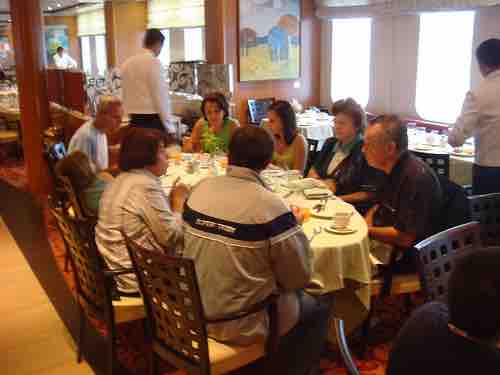Intergenerational conflict plays a key role in the conflict perspective of aging. This social theory suggests that conflict between older and younger generations occurs as they compete for resources and jobs . The conflict perspective of aging is a strand of general sociological conflict theory, which is the theory that sees conflict as a normal aspect of social life rather than as an abnormal occurrence.

At the Intersection of Generation: Conflict or Cooperation?
According to conflict theory, generations of people are in competition with one another for power and resources. Could this occur even at the micro-level?
Conflict theory has three main premises: first, that society is comprised of different groups that compete for resources; second, that despite social attempts to portray a sense of cooperation, a continual power struggle exists between social groups as they pursue their own divergent and competing interests; third, social groups will use resources to their own advantage in pursuit of their own goals, even if it means taking advantage of another group of people.
The conflict perspective of aging thus emphasizes competition between generations. According to the conflict perspective of aging, generations are competing over jobs. The theory developed in 1980s as unemployment rose dramatically. As jobs became increasingly scarce, younger and older generations both felt pressure to compete over available resources, enabling competition between the generational divide. As such, the economic climate of the era in which the theory developed influenced the content of the theory itself.
The conflict perspective of aging is not solely about resource acquisition. Rather, resources stand for power. This perspective on aging maintains that whichever generation happens to be middle-aged at any given point in time is the most powerful compared to the old and the young. Members of the powerful generation act as gatekeepers and orchestrate the distribution of resources and powers to be in line with their own interests, often at the exclusion of the needs of other individuals and generations. Power is therefore maintained by the middle-class, perpetuating their monopoly on resources. This tension, and subsequent competition, is precisely what is addressed by the conflict perspective of aging.